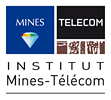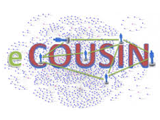Content Distribution Services are booming and they will be responsible for the majority of future Internet traffic. In parallel, Online Social Networks (OSNs) have become today’s most popular Internet application. The widespread adoption of OSNs has drastically changed the way content is consumed in the Internet, as content consumption is nowadays highly impacted by the information shared by users through OSNs and the popularity of a given content is most often dictated by its “social” success. With such a “social-content revolution”, operators need to evolve and optimize their network to avoid being overwhelmed by the ever growing traffic volumes resulting from this paradigm change. To this aim, the goal of eCOUSIN is to design a novel social-aware network architecture with built-in content dissemination functionalities that exploits the social-content interdependencies to improve its efficiency. This goal translates into the following specific objectives: (i) the implementation of high performance distributed tools for collecting necessary data to study and model the social-content interdependencies; (ii) the improvement of the scalability of network infrastructures when handling content by exploiting social information; (iii) the design of an on-net operational framework that tightly integrates network functionalities and content-related service functionalities; and (iv) the design of algorithms that exploit social information for placing and delivering contents in an optimized manner with a special focus on mobile environments. We envision that all these will be fundamental components of the future Internet architecture.
The eCOUSIN consortium comprises two leading network operators, two major manufacturers of telecommunication equipment, one research institute and four universities. All of them are strong actors in the areas of this project, and their complementary nature ensures the impact of the eCOUSIN outcomes on both the industrial and scientific domains.












